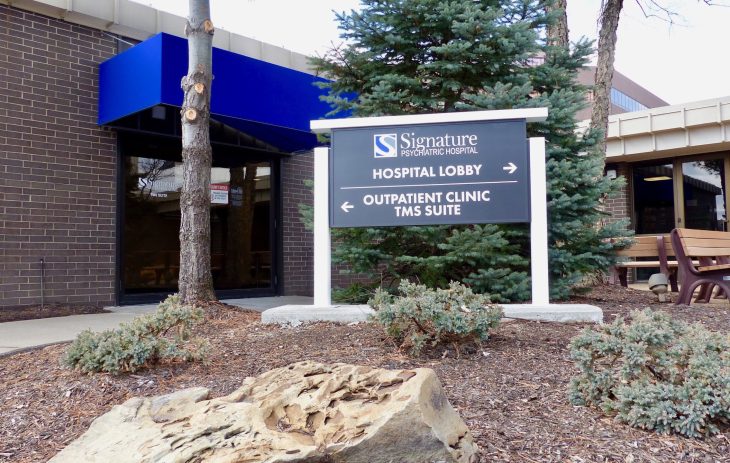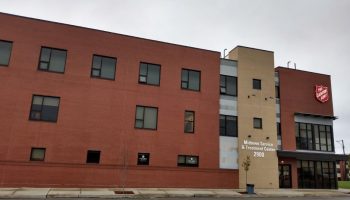About Signature Psychiatric Hospital at North Kansas City
Signature Psychiatric Hospital offered various treatment programs for adults living with substance use disorder and other mental health disorders. They were located in North Kansas City, Missouri, and provided a full continuum of substance use disorder care including detoxification, inpatient, and outpatient programming. However, they have since closed.
Signature Psychiatric Hospital offered drug and alcohol detoxification services in a safe and comfortable setting with the necessary support needed to withdraw from substances. Depending on a client’s medical history and the severity of their addiction, clients could have received medications that eased cravings and withdrawal symptoms, for minimal discomfort. When clients were feeling better, they could have participated in therapeutic services, such as support groups and one-to-one counseling.
Once clients successfully completed detox, they had smooth transitions into Signature’s residential program or one of their other levels of care. In residential treatment, clients continued their recovery journey through individual and group therapy and family counseling. They had experiential therapies such as meditation, yoga, recreational therapies, art therapy, and exercise opportunities. Psychotherapy and medication management were also available for clients who struggled with a co-occuring mental health disorder.
It’s great that Signature Psychiatric Hospital had several specialty treatment tracks for targeted care. Northern Kansas City is home to many diverse populations, and Signature reflects that in their approach. These tracks included opioid addiction treatment, gender-specific treatment, military member treatment, Christian-specific treatment, trauma-focused treatment, and Native American treatment.
Even though they’re closed, there are other treatment centers nearby that can help you.
Levels of Care
-
Inpatient
Inpatient and residential programs provide round-the-clock medical and emotional support as you live at the treatment facility. This level of care may be recommended if you have severe addictions or mental health conditions since it removes outside distractions and allows you to focus solely on therapy.
-
Outpatient
In outpatient therapy, you’ll attend therapy sessions several times each week while living at home. This is ideal if you have a strong support system and a lower risk of relapse. Outpatient treatment offers flexibility to maintain work, school or family obligations.
-
Aftercare
Aftercare programs provide ongoing support after you complete a rehab program. They may include several components to help you maintain sobriety including therapy, community support groups and relapse prevention strategies. This gives you a network of resources as you reintegrate into your daily life.
-
Dual Diagnosis
Dual diagnosis programs address substance use disorders and co-occurring mental health conditions simultaneously. This integrated approach to care improves the likelihood of long term recovery and stability by addressing the root causes of addiction.
Detox Service Setting
-
Inpatient Detox
Inpatient detox occurs in a dedicated treatment facility. You’ll live there around the clock and receive intensive medical support and supervision to help manage your withdrawal symptoms. It is suitable for individuals with moderate to severe addictions as it ensures a stable detox environment.
-
Outpatient Detox
Outpatient detox gives you access to medically supervised withdrawal services while still allowing you to live at home. You’ll attend a clinic for treatment and monitoring. This flexible option is suitable for those with mild to moderate withdrawal symptoms who have strong support systems.
Programs
-
Adult (18+)
Adult programs address the substance use and life challenges specific to adults. Therapists can deliver sessions in individual, group and family settings. Services often include job support and life skills training in a structured environment.
-
Alcohol Detox
Alcohol detox programs offer medical support to help individuals withdraw safely from alcohol. Your care team may use medications to ease your symptoms and provide medical monitoring to address complications.
-
Cognitive Behavioral Therapy
Cognitive behavioral therapy focuses on changing harmful thought patterns and behaviors associated with addiction. You’ll learn healthier coping mechanisms by identifying and replacing negative thoughts. This improves your emotional resilience and decreases your relapse potential.
-
Men
Men's programs address substance use while also considering the social pressures, family roles and mental health concerns that are specific to men. You’ll learn healthy coping mechanisms as you build emotional resilience and develop communication skills.
-
Military / Veterans
Military and veteran programs offer specialized support for clients who served in the armed services. Programs focus on reintegration and healing within a structured and supportive environment that acknowledges the unique struggles of military life.
-
Opioid Detox
Opioid detox uses medications to ease severe withdrawal symptoms. It also includes medical supervision to help you manage potential complications. These services allow you to stabilize and begin a recovery plan.
-
Seniors (65+)
Senior programs address the unique needs of older adults like chronic pain, grief and isolation. Programs include peer support and medical oversight for age related health concerns. The goal is to improve quality of life and promote sober aging.
-
Women
Women's programs offer a safe and supportive space to focus on gender specific issues such as trauma, family roles and mental health conditions. Therapists tailor the sessions to address women's needs and foster empowerment in a healing and nurturing environment.
-
Young Adult (18 - 25)
Young adult programs are designed for individuals who are transitioning into adulthood. Topics of discussion typically include identity, independence and peer relationships. Providers may also offer life skills training and career support.
Payment Options
- Medicaid
- Medicare
- Military Insurance
- Private Insurance
- Self Pay
Accreditations
-
 Joint Commission
Joint Commission
Amenities
- Music Room
- Private Rooms
- Yoga Studio
Contact
Closed





